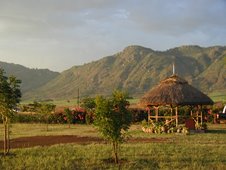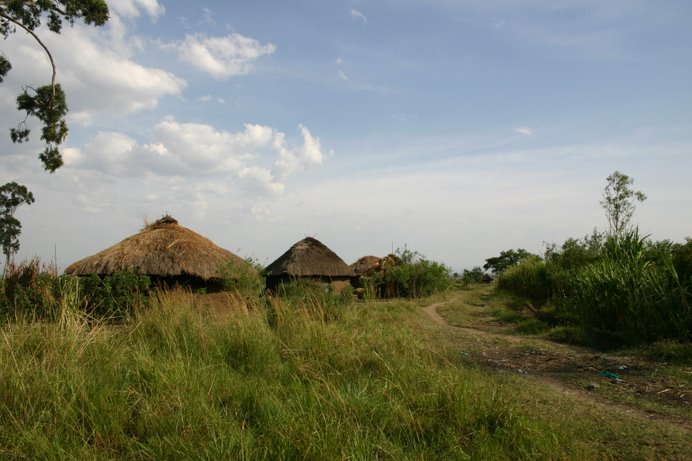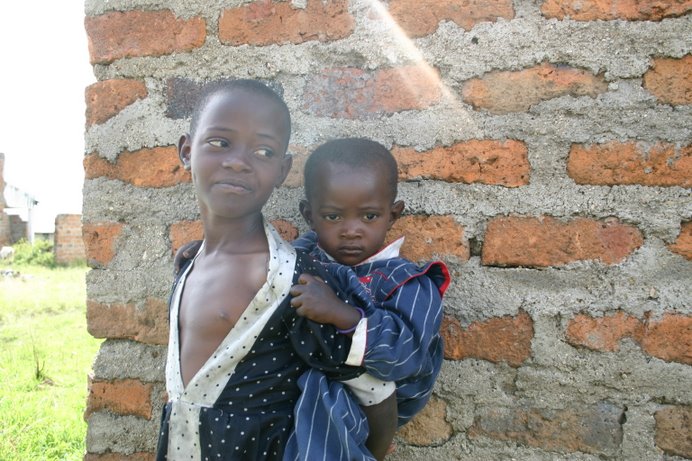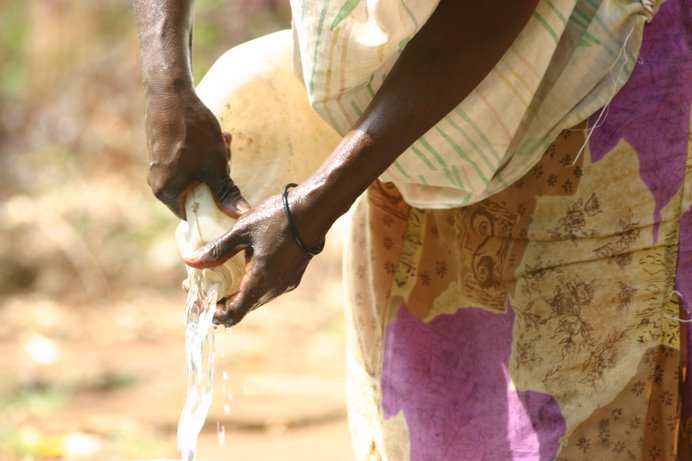Monday, May 10, 2010
April
Every morning around 8:30 (a half hour early) a troop of children come up to the library for our little class. I can hear them coming from half way down the farm as they run and yell excitedly past the other houses and through the field. Four of them are siblings and one is an only child. They immediately start singing as we gather and their little distractible bodies float in and out of song and speech and anticipation to enter the library and hear the story of Jonah one more time. Every day they ask to hear the story about Jonah and how he did not go to Nineveh at first and how the big waves came on that boat and how he prayed inside that big fish…”Jonah pray in fish kubwa!” It is their favorite story, and for some reason we have several story book versions with different pictures inside. (American Christian publishing companies have gone wacko with some of the drawings, the varieties are endless, it is amazing they can still follow the story with Jonah looking like 5 different people from a fat white old man to a young dark and ruddy fellow…) Their enthusiasm for one story over and over is endearing and makes me laugh every day. We are working on the cardinality of numbers---that counting has a one to one correspondence and the last number you say really indicates the whole amount in the set. Because they age from 2—8 in age, it is fun to see the different development stages. Letters are a big deal. We are learning how those letters represent things when you put them together. It is hilarious engaging them in this when English is their third language and they don’t speak it all that well if at all, because they will recognize a picture and say “Yes, Yes! A for ndege! (Ndege is airplane and bird in Swahili) Pictures are quite confusing you know, H for hen easily can be H for chicken and then the correspondence isn’t strong. Using their names has proved powerful in noticing letters and comparing and observing---“Wow, look, David has a big D in the beginning of his name and a small d at the end of his name…they look different but they sound the same don’t they?” The tri-lingual school system here is quite impressive. Even though they all grow beans and have seen them in the shamba their whole lives, they still race to measure our beans we planted and can’t believe how tall they’ve grown, after studying insects they can’t wait to point out all of them even if they’ve past them by in the past--Maybe they are seeing ordinary things with new eyes, which is my hope for them. Investing in the smallest of children can seem so relatively insignificant on a daily level, but is so eternally crucial.
Subscribe to:
Posts (Atom)







